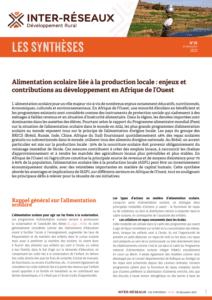The potential of organic agriculture and agroecological approaches for improving food security in Africa is a controversial topic in global discussions. While there is a number of meta-analyses on the environmental, agronomic and financial performance of organic farming, most of the underlying data stems from on-station field trials from temperate regions. Data from sub-Sahara Africa in particular, as well as detailed real-farm data is scarce. How organic farming is implemented in sub-Saharan Africa and how it performs in a smallholder context remains poorly understood. We applied a novel observational two-factorial research design, which allowed to evaluate the impacts of i) interventions for introducing organic agriculture and ii) specific organic management practices on 1,645 farms from five case studies in Ghana and Kenya, which we closely monitored for 24 months. Among the farmers who have been exposed to the interventions, we found heterogeneous adoption of organic agriculture principles, depending on the intervention. Furthermore, we found rather passive than active organic management among farmers. Most yields and gross margins under organic management remained at similar levels as the conventional values in four of the case studies. In one case study, however, coffee, maize and macadamia nut yields increased by 127–308% and farm-level gross margins over all analysed crops by 292%. Pooling our data across all case studies, we found significantly higher (+144%) farm-level gross margins on organically managed farms than on conventional farms. This indicates the potential of organic and agroeco-logical approaches if implemented well. Based on our observations, we argue for improving the implementation of organic agriculture projects in settings with smallholder farmers. Limited capacities, lack of appropriate inputs and market access are major agronomic and institutional challenges to be addressed. Furthermore, we argue for supporting a differentiated debate about which types of organic farming are really desirable by classifying ap-proaches to organic farming according to i) their intention to work organically and ii) the degree of following the organic principles. This will support the design and implementation of targeted policy interventions for stimu-lating sustainability of farming systems and rural development.







